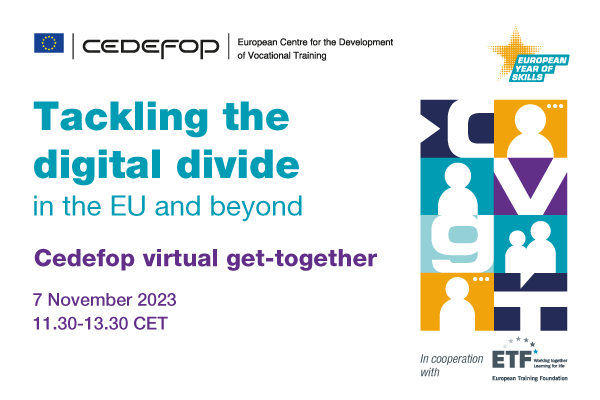The European Year of Skills provides a unique opportunity to discuss in partnership how to make the twin transition – digital and green – a reality. The proliferation of advanced digital technologies, including generative artificial intelligence (AI), comes with concerns about how they will impact the world of work in Europe and beyond. While the issue of how many jobs will be destroyed by smart machines is prominent in academic and policy debates, there has been less focus on understanding the implications of technological innovation for skill mismatches and job quality.
Digitalisation has the potential to expand productivity and to allow workers to focus on more non-routine and rewarding job tasks. In contrast, some digital technology promotes work routinisation and could take over a substantial share of what has long been considered ‘human’ work. Understanding who are the winners and losers from new digital technology in labour markets is crucial for digital and skills policy and its implementation; all the more so as persistent digital divides across and within countries and between population groups can amplify socioeconomic inequalities.
In this sixth virtual get-together, Cedefop joined forces with the European Training Foundation (ETF) to present and discuss the main findings of the Cedefop second European skills and jobs survey (ESJS2). The ESJS2 was developed and carried out by Cedefop in 2021 in 29 European countries (EU-27 plus Iceland and Norway). A year later, the ETF deployed the ESJS2 in seven additional countries (western Balkans and Israel). The survey provides insights into new digital technology (e.g. AI, robots, 3D printers) and its impact on skill needs and skill mismatches of adult workers in EU and neighbouring countries. It is unique because it is the first international survey that measures the digital skill intensity of jobs and the digital skill gaps of working adults, and relates these to job quality, job insecurity and other labour market parameters.
Cedefop and the ETF welcomed experts, policy-makers, social partners, other EU agencies and international institutions, representatives of civil society and other interested parties to learn about the headline ESJS2 findings. The virtual get-together used these findings to provide insights into who is most affected by task automation, which workers are in jobs with low digital skill needs, and which population groups should be prioritised for digital skill training. A panel of experts reflected the evidence and its potential for EU and national digital and skills agendas.
Video recording
The video recording of the event can be watched from here.
(By following the link, the YouTube privacy policy and cookies will apply)
Agenda
Times are indicated in CET.
| 11.30 – 11.40 | Opening and welcome The European skills and jobs survey: informing our common skills challenges Jürgen Siebel, Cedefop Executive Director Pilvi Torsti, ETF Director |
| 11.40 – 12.00 | Setting Europe on course for a human digital transition Konstantinos Pouliakas, expert at Cedefop |
| 12.00 – 12.20 | Digitalisation and digital transition: first ESJS2 results in selected ETF partner countries Eva Jansova, ETF |
| 12.20 – 12.40 | Skill mismatch: what do we know and what do we need to know? Seamus McGuinness, professor at ESRI and Trinity College, Dublin |
| 12.40 – 13.15 |
Making the digital transition work for all
|
| 13.15 – 13.30 |
Questions (via Teams chat) & Answers |
Speakers
|
She served as a State Secretary in three ministries in Finland: the Ministry of Education and Culture 2013-2015 and Ministry of Employment and Economic Affairs & Ministry of Transport and Communications 2019-2023. From 2017 to 2019, Pilvi Torsti was an MP and a member of the education and future committees of the Finnish parliament. View moreShe holds a PhD in social sciences from the University of Helsinki, and is also the co-founder of United World College in Mostar, Bosnia and Herzegovina. Also, she founded HEI Schools, an education company co-owned by the University of Helsinki where she has been an adjunct professor since 2012 and was nominated as the adjunct professor of the year in 2020. Pilvi is UWC graduate (1995) and Eisenhower Fellow (2013). She is married with three children. www.pilvitorsti.com |
|
As Executive Director, he is responsible for managing the Agency’s operations in accordance with the strategic direction of its tripartite Management Board. View moreJürgen has a background in human resources management with particular emphasis on learning and education, the strategic development and roll-out of work-based vocational education and training programmes, as well as related corporate social responsibility initiatives. In this context he has also collaborated with institutional actors at national, European and global levels. Before joining Cedefop in Thessaloniki, Jürgen served for 20 years in various leading operational and strategic HR roles in Siemens AG, mostly as senior manager with global governance or business partner responsibilities. Jürgen earned his MSc in economics at the University of Hamburg, and a PhD in business administration from the University of Vienna. |
|
She focuses on the analysis of socio-economic and employment trends, new forms of work as well as skills dimension of active labour market policies. She also coordinates the implementation of the Cedefop European Skills and Jobs Survey in selected ETF Partner countries. She works primarily in the regions of Central Asia, Eastern Europe and Western Balkans, in close cooperation with the European Commission and the Delegations of the European Union. View moreBefore joining ETF she worked as a researcher and holds Master and PhD degrees in Social Sciences from the Catholic University of Leuven in Belgium. |
|
Ken is a widely published labour economist, an editor of Oxford Economic Papers, and on the editorial boards of the Oxford Review of Economic Policy and Journal of Education and Work. He was the Founding Director of SKOPE (a multidisciplinary research centre on skills, knowledge, and economic performance). View moreFormerly: Economic Director, UK National Development Office; member, English Department for Education’s Skills and Productivity Board; member, UK Armed Forces Pay Review Body; member, Academic Advisory Board to the National Skills Taskforce; consultant for public and private sector organisation including Department for Education and Skills, Department of Trade and Industry, DEFRA, Confederation of British Industry, Oxford Economics; and overseas, the EU, the Polish, Belgian and Omani governments, SIK (Sweden) and Group Training Australia. |
|
Prior to joining the Institute, he held posts at Queens University Belfast, the Northern Ireland Economic Research Centre and the Melbourne Institute of Applied Economic & Social Research (University of Melbourne). He obtained his PhD in Economics from Queens University Belfast in 2003. View moreHis published research covers the areas of labour economics and the economics of education. He has also published research in the areas of industrial relations, small business economics, regional economics, and the economics of constitutional change in Ireland. He is a research fellow in the Institute of Labour Studies (IZA) in the University of Bonn and an Adjunct Professor in the department of economics at Trinity College Dublin. |
|
He leads the Agency’s Skills and Work team and is principal research manager of its Digitalisation and Future of Work and Skill Mismatch projects. His proudest achievement is the development of two waves of the Cedefop European Skills and Jobs Survey. View moreHe has been scientific advisor and author on skills anticipation and skill mismatch for the European Commission, the World Economic Forum, ILO and the Greek Ministry of Labour and is regular instructor for the ILO-ITC. He is currently a core member of the scientific committee of Greece’s National Skills Commission. Before joining Cedefop he held posts at the University of Aberdeen and the University of Cyprus and worked for the Bank of Greece and HM Treasury. He has been invited Professor at the Universita Degli Studi Roma TRE and Visiting Research Scholar at the International Monetary Fund (IMF). He is Honorary Senior Lecturer at the University of Aberdeen Business School and IZA Research Fellow. He holds an M.Phil from the University of Oxford (St. Antony’s College) and a D.Phil from the Scottish Graduate Program in Economics. He has published widely in peer-reviewed economics journals (e.g. Economics of Innovation and New Technology, Oxford Review of Education, Economica, Journal of Economic Surveys, Research in Labor Economics, Education Economics, International Labour Review). |
|
She is the focal point for the Youth Guarantee and the SOCIEUX + facility in DG NEAR. |
|
He currently coordinates the labour market and skills analysis work of the agency. He is also part of the team investigating EU skills trends using online job vacancies. He has a master degree in quantitative and general economics and holds a Ph.d. in social sciences. View moreAs a researcher and project manager at the Dutch research centre for education and the labour market (ROA) Jasper led research projects on labour market issues, skills, employability and obsolescence of knowledge. He also worked on HRD and HRM, taking an economic perspective to human resources issues. Jasper started working for Cedefop in 2007. He led the centre’s early work on skill mismatch, coordinated the centre’s work on national VET systems and policies for several years, and led the centre’s skills governance work. |
Additional keywords
Event details
Downloads
Presentation "Setting Europe on course for a human digital transition - Evidence from Cedefop's ESJS2" (Konstantinos Pouliakas)
Presentation "Digitalisation and digital transition - ESJS in ETF partner countries" (Eva Jansova)
Presentation "Skill mismatch: what do we know and what do we need to know?" (Seamus McGuinness)
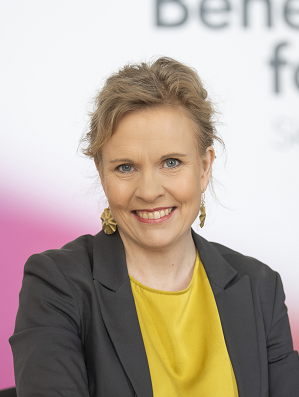 Pilvi Torsti is the Director of the European Training Foundation.
Pilvi Torsti is the Director of the European Training Foundation. Jürgen Siebel, Executive Director of Cedefop, joined Cedefop from the private sector in September 2019.
Jürgen Siebel, Executive Director of Cedefop, joined Cedefop from the private sector in September 2019.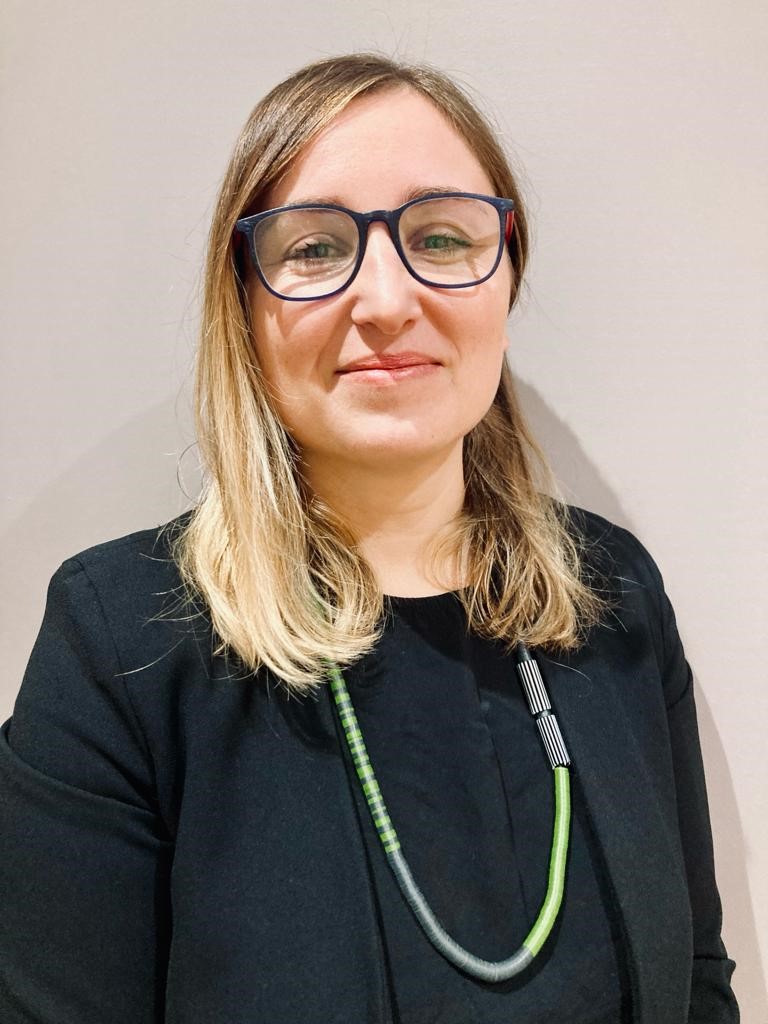 Eva Jansova is a Human Capital Development and Labour Market Expert at the European Training Foundation in Turin.
Eva Jansova is a Human Capital Development and Labour Market Expert at the European Training Foundation in Turin. Ken Mayhew, Emeritus Professor of Education and Economic Performance, Oxford University; Emeritus Fellow in Economics, Pembroke College, University of Oxford; Extraordinary Professor, Maastricht University; Director, Centre for Tutorial Teaching.
Ken Mayhew, Emeritus Professor of Education and Economic Performance, Oxford University; Emeritus Fellow in Economics, Pembroke College, University of Oxford; Extraordinary Professor, Maastricht University; Director, Centre for Tutorial Teaching. 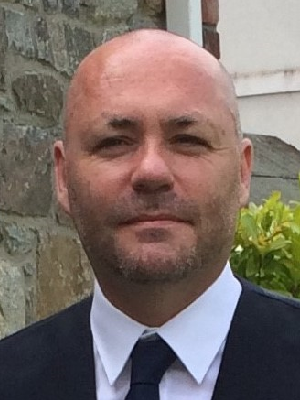 Seamus McGuinness is a Research Professor and the Research Area Co-ordinator for labour market research at the Economic and Social Research Institute.
Seamus McGuinness is a Research Professor and the Research Area Co-ordinator for labour market research at the Economic and Social Research Institute. Konstantinos Pouliakas is an Expert on Skills and Labour Markets at Cedefop.
Konstantinos Pouliakas is an Expert on Skills and Labour Markets at Cedefop. Fanny Serée works in DG NEAR since 2019 where she provides thematic expertise and advice on Human Capital Development, Employment, Social protection and Youth to geographical units of DG NEAR so as to feed the policy dialogue with partner countries and support the programming of EU assistance.
Fanny Serée works in DG NEAR since 2019 where she provides thematic expertise and advice on Human Capital Development, Employment, Social protection and Youth to geographical units of DG NEAR so as to feed the policy dialogue with partner countries and support the programming of EU assistance.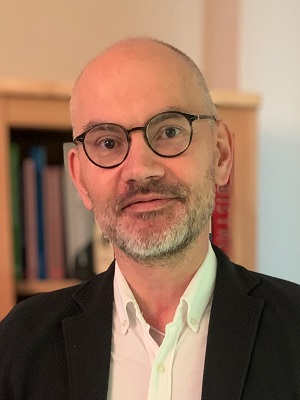 Jasper Van Loo is coordinator of Cedefop’s department for VET and Skills.
Jasper Van Loo is coordinator of Cedefop’s department for VET and Skills.